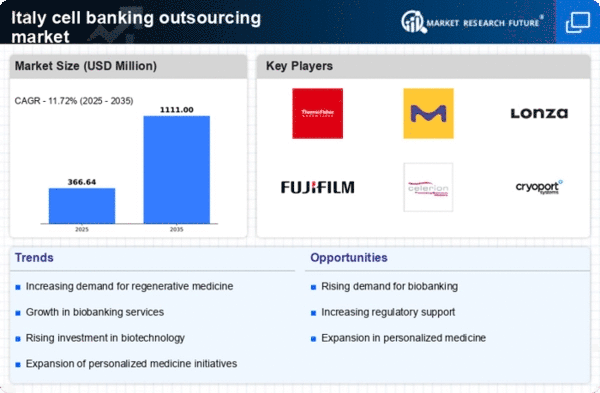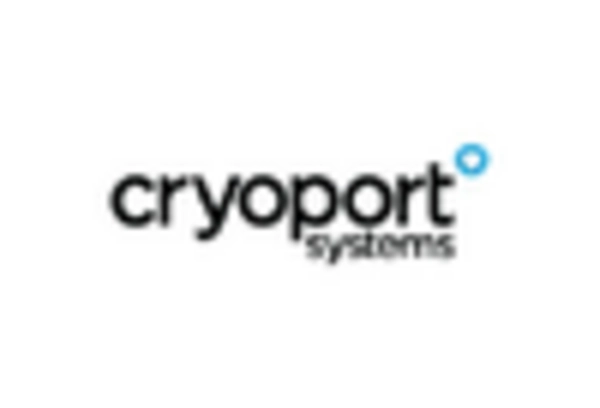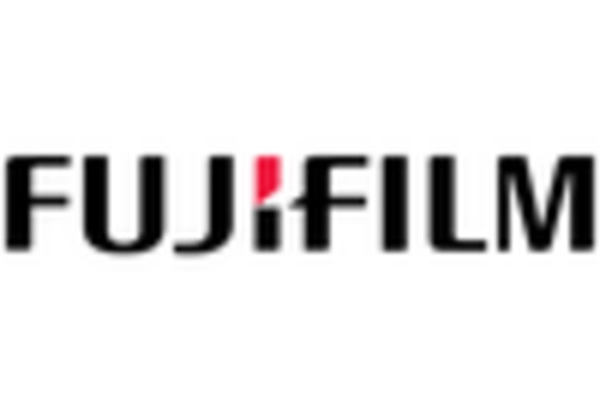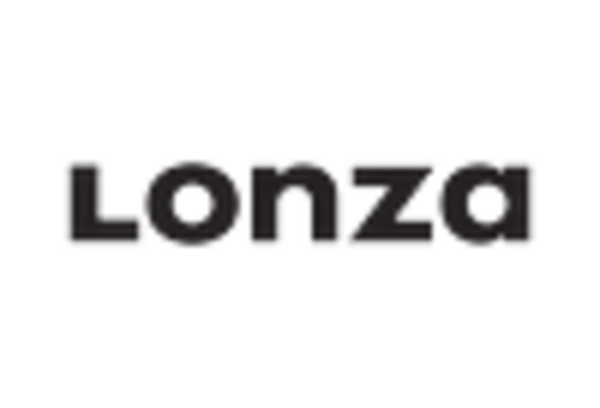Advancements in Storage Technologies
Advancements in storage technologies are significantly influencing the cell banking-outsourcing market in Italy. Innovations in cryopreservation and biorepository management systems are enhancing the efficiency and safety of biological sample storage. These technological improvements are crucial for maintaining the integrity of samples over extended periods, which is essential for research and clinical applications. The cell banking-outsourcing market is capitalizing on these advancements, as organizations increasingly seek to utilize cutting-edge storage solutions to ensure compliance with regulatory standards. The integration of automated systems and real-time monitoring capabilities is further streamlining operations, making outsourcing an attractive option for many organizations. As these technologies continue to evolve, they are expected to drive further growth in the market.
Growing Demand for Biobanking Services
The increasing demand for biobanking services in Italy is a primary driver for the cell banking-outsourcing market. As healthcare systems evolve, there is a notable shift towards personalized medicine, which relies heavily on biobanks for genetic material and biological samples. This trend is reflected in the rising number of biobanks established across the country, with estimates suggesting a growth rate of approximately 15% annually. The cell banking-outsourcing market is benefiting from this demand, as healthcare providers seek to outsource their biobanking needs to specialized firms that can ensure compliance with stringent regulations and provide high-quality storage solutions. Furthermore, the integration of advanced technologies in biobanking is enhancing the efficiency and reliability of sample management, further propelling the market forward.
Increased Focus on Regenerative Medicine
The growing focus on regenerative medicine is driving the cell banking-outsourcing market in Italy. As the field of regenerative medicine expands, the need for reliable sources of stem cells and other biological materials becomes paramount. This trend is evident in the increasing number of clinical trials and research projects aimed at developing regenerative therapies. The cell banking-outsourcing market is responding to this demand by providing specialized services that ensure the proper collection, processing, and storage of these vital materials. With the potential for regenerative medicine to revolutionize treatment options, the market is likely to see continued growth as more organizations seek to outsource their cell banking needs to experts in the field.
Cost Efficiency and Resource Optimization
Cost efficiency remains a crucial factor driving the cell banking-outsourcing market in Italy. By outsourcing cell banking services, organizations can significantly reduce operational costs associated with maintaining in-house facilities. This is particularly relevant for small to medium-sized enterprises that may lack the resources to invest in state-of-the-art biobanking infrastructure. The cell banking-outsourcing market allows these organizations to access high-quality services without the burden of capital expenditure. Reports indicate that outsourcing can lead to cost savings of up to 30%, enabling companies to allocate resources more effectively. Additionally, outsourcing allows for better focus on core competencies, as firms can concentrate on research and development while leaving the complexities of biobanking to specialized providers.
Rising Investment in Research and Development
Investment in research and development (R&D) is a significant driver of the cell banking-outsourcing market in Italy. The Italian government and private sector are increasingly recognizing the importance of biobanking in advancing medical research and innovation. This has led to a surge in funding for R&D initiatives, with allocations reaching approximately €500 million in recent years. The cell banking-outsourcing market is poised to benefit from this trend, as researchers require access to high-quality biological samples for their studies. The collaboration between academic institutions and biobanks is fostering innovation, as researchers can leverage outsourced services to obtain the necessary materials for their projects. This symbiotic relationship is likely to enhance the overall growth of the market.

















